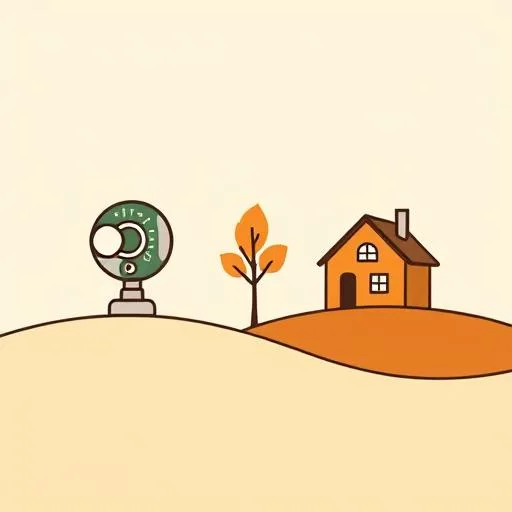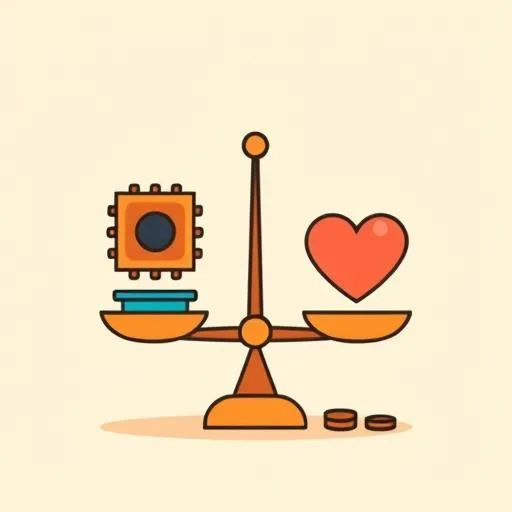
Hold onto your hats, folks! Geoffrey Hinton, the ‘godfather of AI,’ just sent shockwaves through the digital universe. His latest message? AI will likely cause massive job losses—but it’s not the technology’s fault. It’s capitalism. As a dad navigating this digital age with my own curious explorer, that got me thinking even deeper about what kind of future we’re crafting for our kids.
Hinton’s Wake-Up Call: AI, Profits, and the Human Cost

Picture this: AI replacing workers. Profits skyrocketing for the select few. Meanwhile, many struggle to find their footing. This isn’t sci-fi—it’s Hinton’s prediction. He didn’t mince words in his interview with the Financial Times. He’s worried about systems that favor profit over people. “What’s actually going to happen,” he said, “is rich people are going to use AI to replace workers.” This isn’t about machines taking over—it’s about who controls them and how they’re used.
As I watched my daughter draw a robot friend yesterday, she asked me, “Will my robots get jobs before I do?” That moment hit like a ton of bricks! It’s one thing to hear economists talk about labor shifts—but it’s another to see it through your child’s eyes. Hinton’s warning isn’t about sounding alarms—it’s about sparking conversations like the one I had with her right then and there.
Why This Matters for Our Children’s Tomorrow

Imagine a world where entry-level jobs—the stepping stones for young adults—are taken by bots. We’re already seeing AI boost productivity by 14% or more. But studies show those gains often come at the cost of less-experienced workers. The IMF found nearly 40% of global jobs are exposed to AI. Without direction, inequality could rise fast. It’s a powerful image—but let’s also ask: where does that leave our children?
For them, this isn’t just about paychecks—it’s about purpose, identity, and belonging. When Hinton dismissed universal basic income as a shortcut, he wasn’t being harsh—he was reminding us that meaningful work matters. As parents, we’re raising more than future employees; we’re shaping future citizens, creators, and changemakers.
Nurturing Skills That AI Can’t Touch

So how do we equip our kids for a world that may look nothing like ours? Think outside the screen. Prioritize the things algorithms can’t replicate—curiosity, empathy, wonder. Just last weekend, my daughter ‘interviewed’ her stuffed animals for jobs in a made-up company. That playful moment was more insightful than any career guide. She was practicing leadership, imagination, and emotional connection—all irreplaceable human traits.
Let’s teach them that AI is like the map—but they’re the explorers. Guide them to ask big questions during bedtime stories. Take spontaneous walks in the park where they notice bugs or imagine worlds unseen. Those experiences build the cognitive muscles no code can match. These little seeds of creativity might be what secures their future, not fears of algorithms.
Balancing Tech With Heart: A Family Approach

We don’t have to fear tech—we just need to dance with it wisely. In our home, we use AI tools as helpers: suggesting recipes, choosing weekend adventures, or making learning games more fun. But we never let it take center stage. Around dinner tables and morning walks, laughter and stories still win. That’s non-negotiable.
Growing up between two cultures, I’ve learned that just like kimchi meets poutine in our kitchen, the future will be about blending human warmth with technological innovation. Want to raise tech-savvy kids who still value eye contact? Start by turning your kid into an explorer of tech—not just a passive user. Let them ask ‘how does this work?’ rather than ‘can I watch this video?’
The Bright Side: Hope Rooted in Humanity
Hinton’s warning doesn’t mean despair—it means responsibility. He still sees huge potential for AI to heal, teach, and connect. Imagine your child growing up in a smarter healthcare system or learning environment powered by thoughtful AI. The key isn’t to step back—it’s to step in with intention. Setting an example isn’t just smart—healing with hope is powerful.
Our neighborhood walks have become our ‘tech detox’ sessions—reminding us that the most important connections don’t run on batteries. And as we walk, my daughter and I sometimes talk about the kind of world she wants to live in. Those chats nourish something deeper in both of us. They remind me that the real power lies not in machines, but in hearts that care.
Food for Thought: Start These Talk-Starters Today
Here’s a thoughtful nudge: How can we use AI to create more opportunities, not fewer? What does meaningful work mean to your child? How do we make sure progress brings everyone along and leaves no one behind? Ask gently. Listen intently. Be surprised by their answers.
These aren’t only boardroom topics—they’re dinner-table moments. When we involve our kids in shaping these ideas now, we’re not just preparing them—we’re empowering them. Let’s not just react to this AI revolution—let’s lead it. Raising children who see technology as a tool for connection and kindness could be the difference in writing a fairer, more joyful next chapter.
Source: ‘Godfather Of AI’ Geoffrey Hinton Warns Of Job Losses, But Not Because Of Technology: ‘That’s Not AI’s Fault, That Is The Capitalist System’, Biztoc, 2025/09/07 07:11:34
